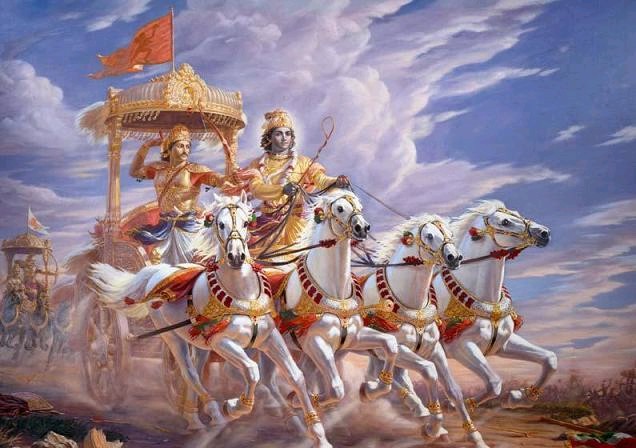A Russian court has dismissed a call to ban an edition of the holy
book Bhagvad Gita in their country, in a case that triggered protests in India.
A lawyer representing the movement in Tomsk, Alexander Shakhov, welcomed the judge’s decision, saying it “shows that Russia really is becoming a democratic society”.
Lord Krishna and Arjuna on their chariot, whose dialogue forms the Bhagavad Gita
Hare Krishna followers in Russia saw the case as part of efforts by the Russian Orthodox Church to restrict their activities.
The trial began in June and had been due to conclude on 19 December, but it was delayed until 28 December at the request of the Russian ombudsman for human rights.
But neither the ombudsman Vladimir Lukin nor his Tomsk colleague Nelli
Krechetova was present in court for Wednesday’s ruling.
India’s Foreign Minister, SM Krishna, complained to the Russian
Ambassador to India, Alexander Kadakin, about the Tomsk prosecution.
Mr Krishna said Indians had reacted very negatively to the alleged
infringement of Hindu rights in Russia.
The Bhagavad Gita, one of the most popular texts for Hindus, takes the form of a conversation between the Lord Krishna and prince Arjuna.
Earlier this month Indian MPs demanded the government protect Hindu rights in Russia, shouting: “We will not tolerate an insult to Lord Krishna.”
Ambassador Kadakin, quoted by the AP news agency, distanced himself from the Tomsk prosecutors, saying “any holy scripture, whether it is the Koran, Bhagvad Gita, the Bible, Avesta or Torah cannot be brought into court”.

